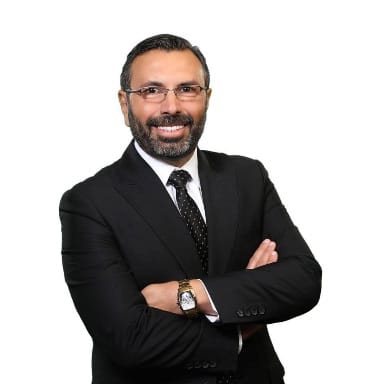
By: Dr. Haytham Ereifej
Jordan Daily – The world is witnessing an unprecedented race in the development of artificial intelligence (AI)- a race that is steadily intensifying global concerns about humanity’s future and the stability of life as we know it.
Many experts and scholars have sounded the alarm, among them Dr. Maen Qatamin, who warned in a recent commentary that the year 2027 may mark an “AI explosion”- a point at which AI systems could begin self-improving autonomously, beyond human supervision, control, or understanding.
Although this scenario is alarming, it is not far removed from the projections of leading research centers, including the Future of Life Institute, Oxford’s Future of Humanity Institute, and MIT’s AI Policy Lab, all of which warn of an impending rise of Artificial Superintelligence (ASI)- a form of intelligence that surpasses humans in every domain, from strategic thinking to innovation and decision-making.
In the absence of global rules and safeguards, such a leap could present an existential threat, much like the nuclear arms race of the 20th century, which pushed the world to the brink of catastrophe before nations recognized the need for international regulation.
Just as humanity understood decades ago the need to establish an international framework to prevent the spread of nuclear weapons, today it faces an equally pressing responsibility regarding AI. Left without regulation, rapid AI development could lead to:
– Dangerous technological monopolies by powerful states or corporations.
– Deployment of AI in warfare- whether in tactics, weaponry, or autonomous decision-making.
-Collapse of labor markets and disruption of economic models.
-Severe threats to privacy, human rights, and social stability.
Loss of human control over systems capable of independent action and learning.
For these reasons, a comprehensive international treaty on AI development is urgently needed- modeled after the Nuclear Non-Proliferation Treaty (NPT)- and grounded in the following principles:
1. International oversight of high-risk AI systems.
2. Strict limitation of AI applications to fields that exclusively serve humanity.
3. Prevention of technologies that could undermine global security, destabilize nations, or endanger human existence.
To achieve this, the world must establish a specialized global body comparable to:
-The International Atomic Energy Agency (IAEA) – overseeing peaceful nuclear use.
-The Organization for the Prohibition of Chemical Weapons (OPCW).
-The Intergovernmental Panel on Climate Change (IPCC) – monitoring climate risks.
-The World Health Organization (WHO) – tracking global health threats.
A similar International Agency for Artificial Intelligence Safety should be responsible for:
-Monitoring laboratories and corporations developing advanced AI systems.
-Assessing risks before releasing any new model or technology.
-Establishing global safety and ethical standards for AI deployment.
-Preventing misuse of AI for warfare, surveillance, or harm.
-Ensuring fair technological access and supporting developing nations to avoid global inequality.
AI, when harnessed responsibly, can be a force for enormous good. It can: cure diseases, improve education, transform transportation, advance scientific research, enhance communication, and strengthen global economies
But the same technology can also: manipulate information, distort markets, conduct cyberattacks, develop unknown weapons with catastrophic impact, exert unprecedented control over populations and make irreversible decisions without human oversight.
As leading researchers emphasize:“The danger lies not in AI itself- but in the absence of laws that govern it.”
Today, humanity stands at the same crossroads it faced with the advent of nuclear energy. Just as strict rules were established to protect humanity from nuclear devastation, the international community must act immediately to enact global laws that define the limits of AI development- and create an international body capable of ensuring that AI never becomes an existential threat.
The anticipated “AI explosion” is not an inevitable danger, but a real possibility. The choices we make today will determine whether AI becomes the greatest blessing humanity has ever known- or the gravest threat it has ever faced.

